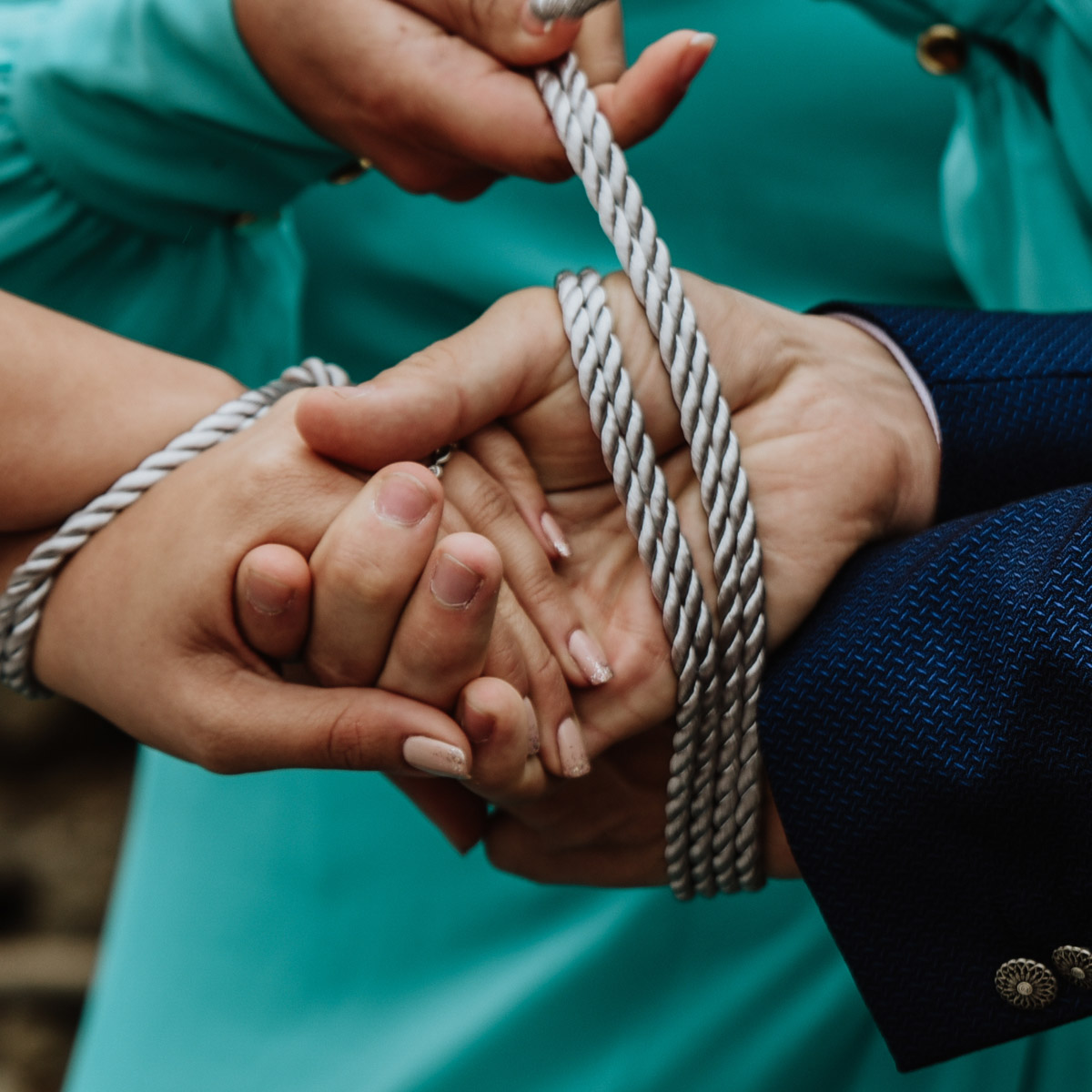
A handfasting ceremony is a traditional ritual that symbolises a couple's commitment to each other.
It has its roots in various cultures and historical periods, but it is most commonly associated with Celtic traditions in Scotland and Ireland.
The word "handfasting" is derived from the Old Norse word "handfesta," which means "to strike a bargain by joining hands."
Here's a breakdown of the history, meaning, and who can lead a handfasting ceremony
History
Celtic Roots - Handfasting has its origins in ancient Celtic customs, where couples would join hands and have their union blessed by a priest or druid. It was often considered a trial marriage, lasting for a year and a day, after which the couple could choose to formalise their marriage, or part ways.
Medieval and Renaissance Periods - Handfasting continued to be practiced in Scotland and Ireland during the medieval and Renaissance periods. It was recognised as a legal form of marriage in some regions.
Modern Revival - In recent years, handfasting has experienced a revival, especially in contemporary Pagan and Wiccan circles. It is now often used as a meaningful part of secular or alternative wedding ceremonies.
Meaning
Symbolism - The central act of a handfasting ceremony involves the couple's hands being bound or tied together with a cord or ribbon, symbolising their union and commitment.
Flexibility - Handfasting ceremonies can be tailored to the beliefs and preferences of the couple. They can include personal vows, readings, and other elements that hold significance to the individuals involved.
Duration - In modern handfasting ceremonies, the binding is usually not intended to be temporary but rather a symbol of the couple's commitment for as long as they choose.
Who Can Lead It?
Officiant - A handfasting ceremony can be led by a qualified officiant, such as a minister, priest, or a recognised leader in the couple's faith or belief system.
Secular Celebrant - In cases where the couple prefers a non-religious or secular ceremony, a certified secular celebrant or wedding officiant can conduct the handfasting.
Self-Officiating - In some jurisdictions, couples can legally self-officiate their weddings, including handfasting ceremonies, without the need for an external officiant.
Handfasting Pricing
- My fees depend on the personalisation that you require. Once I know what your wishes are, we can choose the ceremony that best matches your needs and budget.
I'd love to hear from you!
Follow me on Social Media - or pop-up in my DMs and say hello.
Feel free to call or text me on 07854 178369
Or email me at [email protected]
I am based in Kent and cover all of Kent and the South East, Sussex, Essex and parts of London.
For Ceremonies throughout the UK please do contact me for an individual quote.



